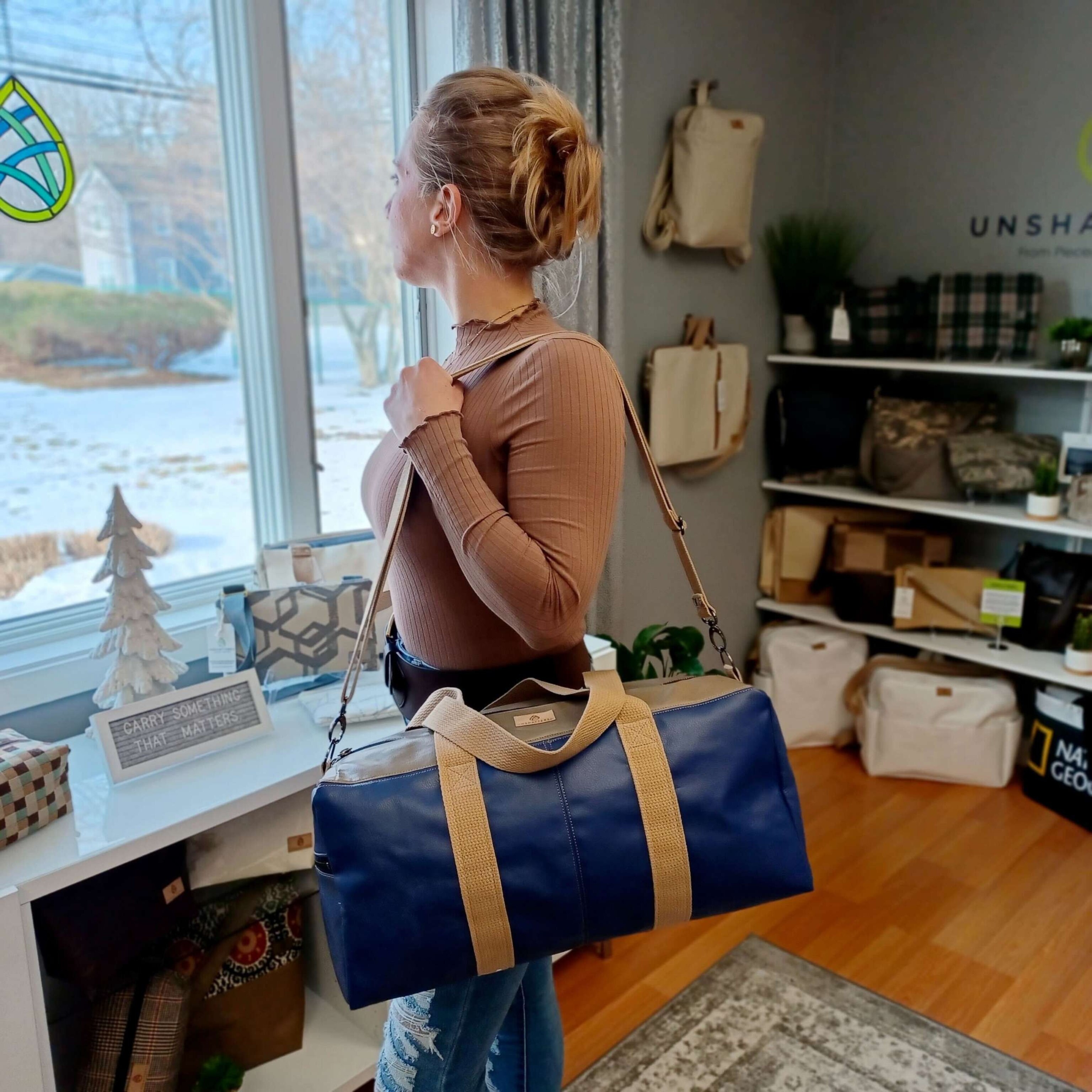New York nonprofit Unshattered builds back lives one handbag at a time
“I'm doing...things that I never thought I'd be able to do,” one employee said.
Amanda Richline had finished a recovery program for drug addiction and, only 12 hours later, “I went right back to the same things,” she told ABC News. She had relapsed and was feeling hopeless.
Richline then entered a recovery program for a second time and found renewed hope. As part of her recovery, she was offered a chance to work with Unshattered, a New York-based nonprofit that employs women in recovery from addiction and trains them to make fashion accessories.
That was more than four years ago, and Richline, who had a career as a cake maker and decorator, found a creative outlet in making Unshattered's signature accessories. “So that translated well, and I quickly picked up on the sewing. And then was doing custom bags.”
She is now the product manager and creative lead at the nonprofit, where everyone except founder and CEO Kelly Lyndgaard are women in recovery from substance abuse.
The company, which was started six years ago, recently announced a new collaboration with Southwest Airlines which, as part of their “Repurpose with Purpose” program, is providing leather that used to upholster airplane seats for the Unshattered team to make into duffel bags, tote bags and purses.

These types of collaborations are common, said Lyndgaard, noting that Unshattered's creations include retired U.S. Army uniforms and vintage Mercedes-Benz interiors.
“We’re honored to welcome Unshattered as a partner and support their work; generating social and economic opportunities for communities all over,” Southwest Airlines’ Vice President of Communications & Outreach Laurie Barnett said in a press release.
Lyndgaard was an IBM executive when she attended a church event -- where women spoke about their struggles with addiction and sobriety -- that inspired her to make a career shift.
“I never thought that my career would take a turn like this,” she told ABC News, admitting that she had biases against people struggling with addiction.
“I walked in the door that night thinking that people that were struggling with addiction just needed to get their act together, be more responsible and get a job,” she said, and wound up having “a fundamental shift in my understanding of addiction.”
In particular, learning how difficult it is for women struggling with addiction to “get back on their feet” inspired her to create Unshattered. The nonprofit aims to provide women with “all the pieces of the equation,” she said, which include stability, financial support in the form of employment and community.
For Amanda Richline, the community at Unshattered is her favorite part of the job.
“We just are really there to support each other and encourage each other,” she said, referring to the six other women in recovery who currently work at the company. “Having that support community of other people who are also in recovery is really helpful.”
“I never had a job where I had people working with you, always lifting you up,” said Amberlee Bosak, another employee of Unshattered who does product photography and inventory management.
“Because of my record I never thought I’d be able to work in retail again,” she said. “I'm doing a lot of things that I never thought I'd be able to do.”
One of the inspirations behind the company is the Japanese concept of Kintsugi, through which broken pieces of pottery are mended using golden lacquer that highlights the places where the ceramic was broken. This metaphor -- made stronger for having been broken -- is important for the Unshattered team, which stitches a golden seam into every product.
In the next few weeks, Lyndgaard said the company will be closing on a larger facility in the Hudson River Valley, close to the nonprofit's current location. The facility will be 10 times the size of their current workspace, which she said the company has outgrown.
“We know that we have a model that is working,” she said. “We want to do more of it.”




